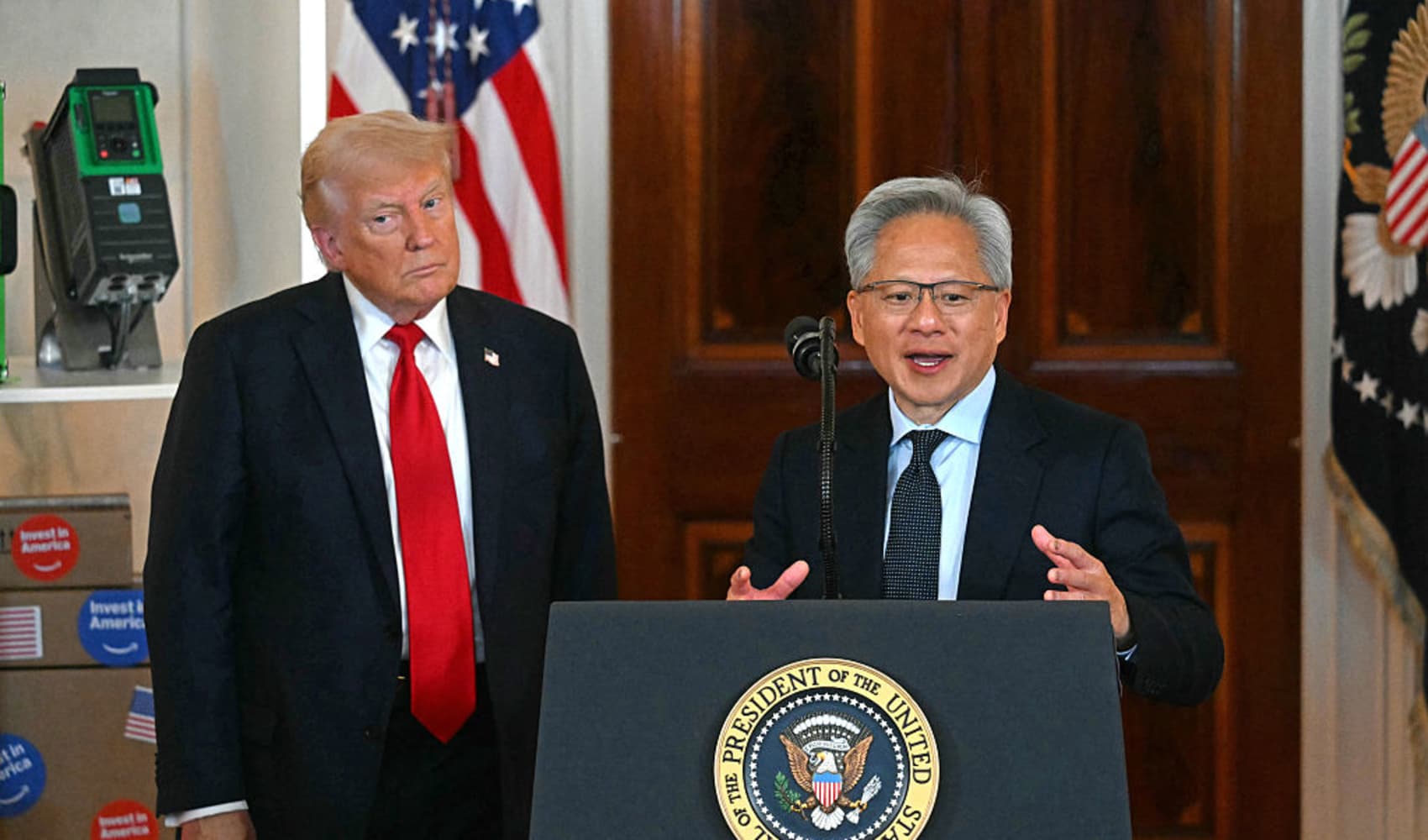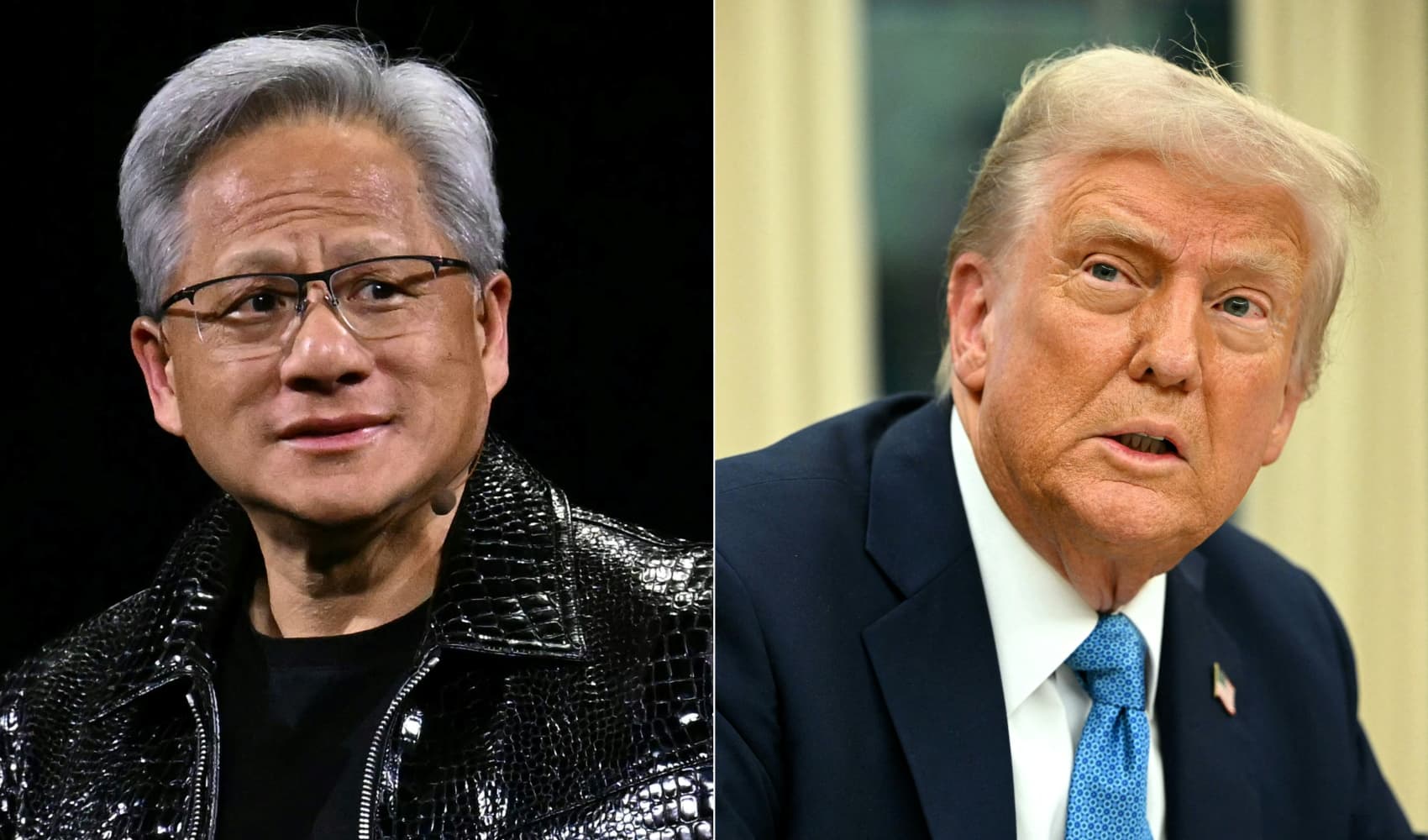Trump Ends Biden's Chip Restrictions: Who Wins, Who Loses?
Trump Poised to Roll Back Biden's Chip Export Limits: What It Means for Tech
Introduction: A Semiconductor Showdown?
Hold on to your hats, folks, because the tech world is about to get a whole lot more interesting! It seems the Trump administration is gearing up to reverse some of the current U.S. chip export restrictions put in place under the Biden administration. Specifically, they're looking to scrap what's been dubbed the "AI diffusion rule." But what does this mean for you, for the tech giants, and for the future of AI itself? Let's dive in!
The "AI Diffusion Rule": What Was It All About?
This "AI diffusion rule" sounds pretty ominous, right? Well, it was essentially a set of restrictions aimed at controlling the export of advanced AI semiconductors. The intention, presumably, was to prevent these powerful chips from falling into the wrong hands, particularly those of potential adversaries. The restrictions were initially slated to take effect on May 15th. Think of it like trying to control the flow of a vital ingredient in a very powerful recipe.
Why the Trump Administration is Considering a Reversal
So, why the change of heart? Well, there are likely several factors at play here. It could be about boosting the American chip industry, or perhaps seeing the restrictions as hindering innovation. The specific rationale hasn't been fully laid out, but we can infer some motives from the reactions of industry leaders.
Economic Considerations
One major factor could be economic. Restricting exports means potentially losing out on significant revenue streams. Companies like Nvidia and AMD, who are major players in the chip market, have been quite vocal about their concerns. Think of it as cutting off a branch that's bearing fruit – a short-term gain might lead to a long-term loss.
National Security
While the initial restrictions were framed as a national security measure, the Trump administration might view the situation differently. Perhaps they believe that robust domestic innovation, even with some risk of proliferation, is a stronger long-term security strategy. It's a gamble, to be sure, but one they seem willing to take.
Chipmakers Rejoice: Nvidia and AMD's Stance
No surprises here – chipmakers are pretty happy about this potential reversal. Nvidia shares, for instance, saw a jump in value as news broke. Why? Because fewer restrictions mean more opportunities to sell their products in the global market. They've argued that limiting exports actually hurts U.S. leadership in the advanced technology sector.
Nvidia's Vocal Opposition
Nvidia hasn't been shy about expressing their disapproval of the restrictions. They believe that limiting the availability of their chips stifles innovation and gives competitors an edge. "We welcome the Administration's leadership and new direction on AI policy," the company stated, signaling their approval of the potential policy shift. They see it as paving the way for continued American dominance in the AI landscape.
The Potential Impact on Global AI Development
What does this mean for the global race in AI? Well, it could accelerate the pace of development, but with potential consequences. By making advanced chips more readily available, the reversal could democratize access to AI technology, allowing more countries and organizations to participate in the field.
A Double-Edged Sword
However, this increased accessibility could also lead to a more rapid advancement in potentially dangerous applications of AI. It's like giving everyone access to the ingredients for a powerful potion – some will use it for good, others might not. Think self-driving cars, advanced weaponry, and even sophisticated surveillance systems.
The Geopolitical Implications: A New Cold War?
The tech sector has become a major battleground in geopolitical tensions, particularly between the U.S. and China. Restrictions on chip exports were seen as a way to curb China's advancements in AI and other strategic technologies. So, what will the consequences of rolling these measures back be?
Easing Tensions, Fueling Competition
On one hand, it could ease tensions by fostering a more open market. On the other, it could fuel even fiercer competition. China is investing heavily in its own domestic chip industry, and the availability of U.S. chips could give them a significant boost. It’s like providing the fuel for a competitive rocket ship. But remember the U.S. also benefits from these sales by boosting the profitability of American companies.
The Broader Tech Landscape: Beyond Chips
It's not just about chips, though. This decision could have ripple effects across the entire tech landscape. Think about the companies that rely on these chips to build their products – from smartphones and computers to data centers and autonomous vehicles. The availability and price of these chips can impact everything.
Supply Chain Dynamics
The global supply chain is already incredibly complex. Removing these restrictions could simplify things, making it easier for companies to source the components they need. But it could also create new dependencies and vulnerabilities. It’s a constant balancing act between efficiency and resilience.
Political Considerations: Navigating a Complex Landscape
Of course, no discussion of policy changes would be complete without acknowledging the political dimensions. This decision is sure to spark debate, both within the U.S. and internationally. Expect to hear arguments about national security, economic competitiveness, and the ethical implications of AI.
The Role of Lobbying
Lobbying by chipmakers and other tech companies has undoubtedly played a role in shaping this policy shift. These companies have deep pockets and powerful voices, and they're not afraid to use them to advocate for their interests. It's a reminder that policy decisions are often influenced by a variety of competing forces.
The Future of AI Regulation: What Lies Ahead?
This decision to potentially rescind the AI diffusion rule raises broader questions about the future of AI regulation. How do we balance the need to foster innovation with the imperative to mitigate risks? What role should governments play in shaping the development and deployment of AI? There are no easy answers.
International Cooperation
Ultimately, effective AI regulation will likely require international cooperation. AI is a global technology, and its impacts will be felt worldwide. Countries need to work together to establish common standards and norms, and to address the ethical and security challenges posed by AI.
The Potential Pitfalls: Unintended Consequences
Policy decisions, like any complex endeavor, are often fraught with unintended consequences. What are some potential pitfalls of reversing the chip export restrictions? Could it lead to a proliferation of dangerous AI technologies? Could it undermine U.S. competitiveness in the long run? These are questions that policymakers need to carefully consider.
The Consumer Perspective: How Will This Affect You?
You might be thinking, "Okay, this all sounds important, but how does it affect me, the average consumer?" Well, the availability and price of chips can impact the cost of everything from your smartphone to your car. Moreover, the pace of AI development will shape the products and services you use every day.
AI-Powered Everything
From personalized recommendations to self-driving cars, AI is already transforming our lives. The direction of AI policy will play a significant role in shaping this transformation. So, even if you're not a tech expert, you have a stake in this debate.
Conclusion: A Pivotal Moment for AI
The potential reversal of the "AI diffusion rule" marks a pivotal moment in the ongoing debate over AI regulation. It signals a shift in priorities, from strict controls to a more open approach. While this could spur innovation and boost the chip industry, it also raises concerns about national security and the ethical implications of AI. Ultimately, the long-term impacts of this decision remain to be seen. Whether it's a bold move or a risky gamble, the world will be watching to see how it plays out. The key takeaways are:
- The Trump administration is considering reversing Biden's AI chip export restrictions.
- Chipmakers like Nvidia and AMD are in favor of the change.
- The decision could have significant impacts on global AI development and geopolitical tensions.
Frequently Asked Questions
- What exactly is the "AI diffusion rule?"
It's a set of restrictions on the export of advanced AI semiconductors, designed to prevent them from falling into the wrong hands. - Why are chipmakers against the restrictions?
They argue that the restrictions stifle innovation and hurt U.S. competitiveness in the global market. - How could this policy change affect the average consumer?
It could impact the cost and availability of tech products, as well as the pace of AI innovation in everyday life. - What are the potential risks of reversing the chip export restrictions?
It could lead to a proliferation of dangerous AI technologies and potentially undermine U.S. national security. - Is this decision likely to be permanent?
That's difficult to say. It will depend on a variety of factors, including political developments, technological advancements, and geopolitical considerations.


